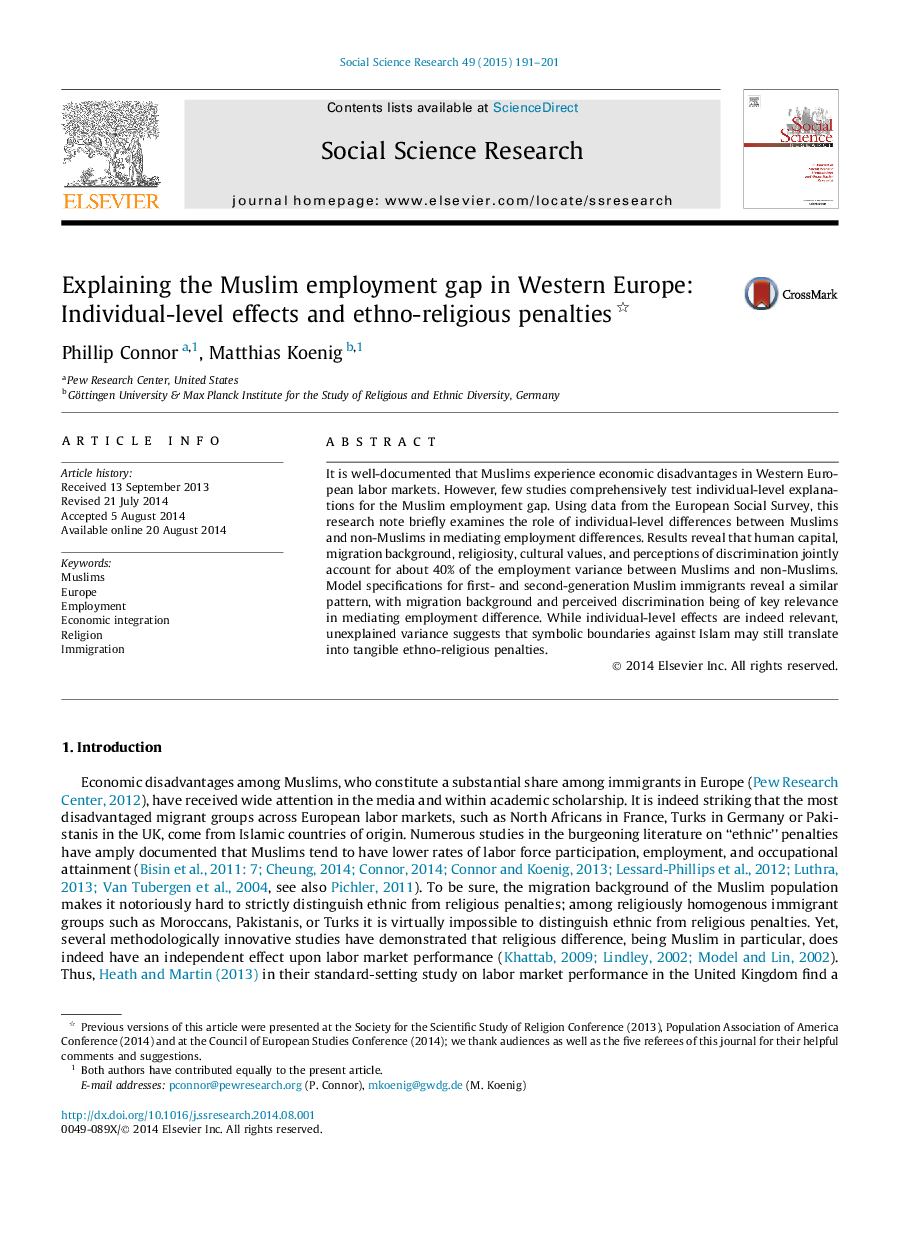| Article ID | Journal | Published Year | Pages | File Type |
|---|---|---|---|---|
| 7339213 | Social Science Research | 2015 | 11 Pages |
Abstract
It is well-documented that Muslims experience economic disadvantages in Western European labor markets. However, few studies comprehensively test individual-level explanations for the Muslim employment gap. Using data from the European Social Survey, this research note briefly examines the role of individual-level differences between Muslims and non-Muslims in mediating employment differences. Results reveal that human capital, migration background, religiosity, cultural values, and perceptions of discrimination jointly account for about 40% of the employment variance between Muslims and non-Muslims. Model specifications for first- and second-generation Muslim immigrants reveal a similar pattern, with migration background and perceived discrimination being of key relevance in mediating employment difference. While individual-level effects are indeed relevant, unexplained variance suggests that symbolic boundaries against Islam may still translate into tangible ethno-religious penalties.
Related Topics
Social Sciences and Humanities
Psychology
Social Psychology
Authors
Phillip Connor, Matthias Koenig,
